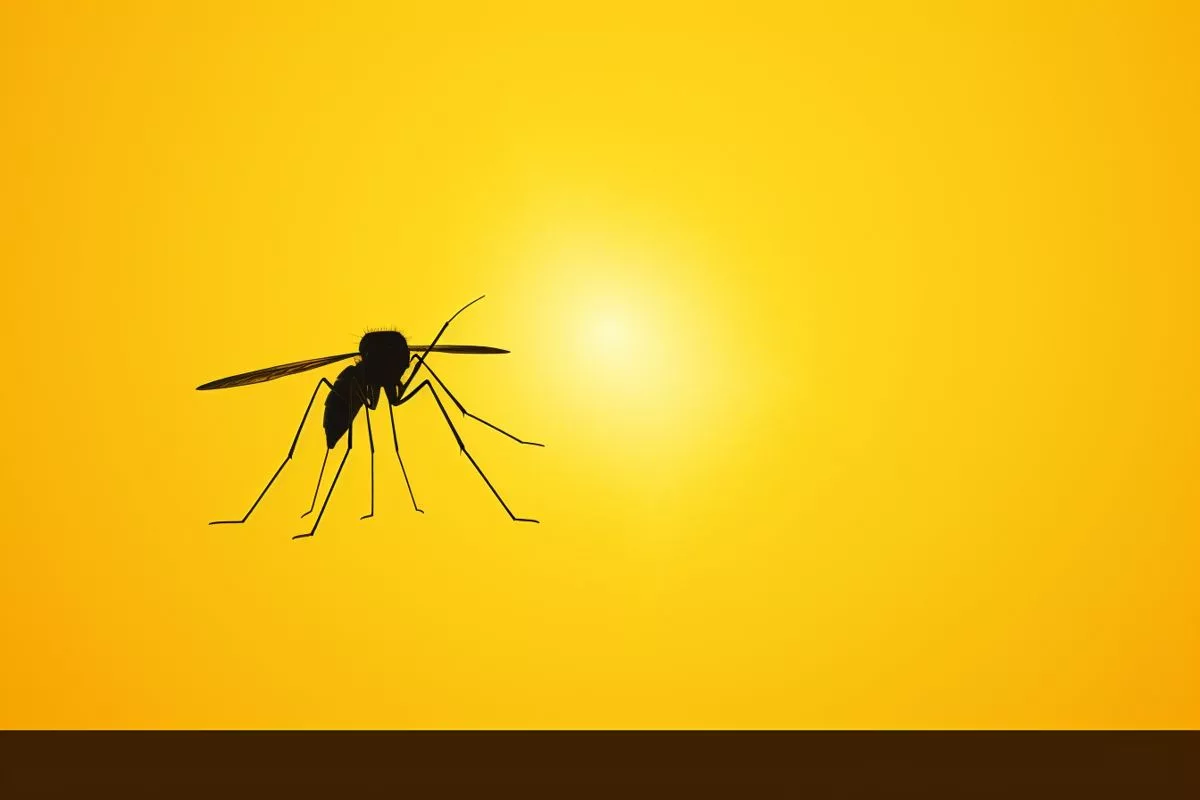The Gauteng Department of Health in South Africa has intensified its malaria awareness campaign, targeting public transportation hubs to emphasize prevention measures. The department provides malaria chemoprophylaxis to travelers leaving South Africa for endemic regions and urges them to report any symptoms within 21 days of returning for quick testing and treatment. The GDoH has also teamed up with Doctors Without Borders to enhance awareness and translation of malaria information. Through these efforts, the department aims to reduce malaria transmission and safeguard its residents.
What is the Gauteng Health Department doing to raise malaria awareness?
The Gauteng Department of Health has intensified its malaria awareness campaign, focusing on public transportation hubs to emphasize prevention measures. They provide malaria chemoprophylaxis to travelers leaving South Africa for endemic regions and urge travelers to report any malaria symptoms within 21 days of their return for quick testing and treatment. The GDoH consistently trains health promoters at district and facility levels on malaria and has joined forces with Doctors Without Borders to enhance awareness and translation of malaria information.
In celebration of Malaria Day on November 6, 2023, the Gauteng Department of Health (GDoH) has intensified its malaria awareness campaign, focusing on public transportation hubs such as taxi ranks and bus stations to emphasize preventive measures.
Between January and September 2023, 1,105 malaria cases and ten fatalities were reported in Gauteng hospitals. The deadly disease is transmitted to humans by mosquitoes in endemic areas. Most of the affected individuals had traveled to malaria-endemic Southern African Development Community (SADC) regions like Mozambique, Ethiopia, Nigeria, Zimbabwe, Zambia, and Angola.
Although the Limpopo, Mpumalanga, and Kwa-Zulu Natal provinces in South Africa are known as malaria hotspots, non-endemic provinces like Gauteng must also prioritize awareness regarding prevention and management strategies. This is due to the frequent travel of residents to these endemic regions, which heightens the risk of malaria transmission.
Recognizing Malaria Symptoms and the Importance of Early Detection
Malaria symptoms encompass fever, headache, body aches and pains, fatigue, nausea, vomiting, loss of appetite, diarrhea, and flu-like symptoms. Prompt detection and treatment are crucial for individuals experiencing any of these symptoms following a visit to a malaria-prone area, as delayed treatment can prove fatal.
To reduce infection rates, the GDoH provides malaria chemoprophylaxis to travelers leaving South Africa for endemic regions. Additionally, they urge travelers to report any malaria symptoms within 21 days of their return for quick testing and treatment.
When traveling to malaria-endemic areas, people should take protective measures such as regularly applying mosquito repellents, wearing long pants and long-sleeved shirts, remaining indoors between dusk and dawn, sleeping in air-conditioned rooms or those with a fan, and using insecticide-treated nets.
Ongoing Community Awareness and Collaborative Partnerships
To sustain awareness at the community level throughout the province, the GDoH consistently trains health promoters at district and facility levels on malaria. Moreover, the GDoH has joined forces with Doctors Without Borders to enhance awareness and translate malaria information, education, and communication materials into Portuguese, as 90% of cases reported in Gauteng involve travelers from Mozambique.
This partnership between the GDoH and Doctors Without Borders underscores the significance of a multi-organizational approach to combating malaria and addressing language barriers to effectively reach vulnerable populations.
Emphasizing Prevention, Early Detection, and Treatment
As part of their ongoing efforts, the GDoH highlights the importance of early detection, diagnosis, and treatment, as well as implementing preventive measures, particularly for travelers. This dedication to combating the preventable and treatable disease aligns with the broader global efforts to control and ultimately eliminate malaria, which continues to pose a significant threat in many regions worldwide.
In summary, the Gauteng Department of Health’s heightened malaria awareness campaign showcases its commitment to informing the public on prevention measures and stressing the importance of early detection and treatment. Through collaborations with organizations like Doctors Without Borders and targeting strategic locations such as public transport nodes, the GDoH aims to safeguard its residents and decrease the malaria burden within the province.
What is malaria and how is it transmitted?
Malaria is a disease that is transmitted to humans by mosquitoes in endemic areas. It is caused by a parasite that infects red blood cells and can lead to symptoms such as fever, headache, body aches and pains, fatigue, nausea, vomiting, loss of appetite, diarrhea, and flu-like symptoms.
What are the symptoms of malaria and why is early detection important?
Symptoms of malaria include fever, headache, body aches and pains, fatigue, nausea, vomiting, loss of appetite, diarrhea, and flu-like symptoms. Early detection is crucial for individuals experiencing any of these symptoms following a visit to a malaria-prone area, as delayed treatment can prove fatal.
How is the Gauteng Health Department raising awareness about malaria prevention?
The Gauteng Department of Health is intensifying its malaria awareness campaign, focusing on public transportation hubs to emphasize prevention measures. They provide malaria chemoprophylaxis to travelers leaving South Africa for endemic regions and urge travelers to report any malaria symptoms within 21 days of their return for quick testing and treatment. The GDoH consistently trains health promoters at district and facility levels on malaria and has joined forces with Doctors Without Borders to enhance awareness and translation of malaria information.
What preventive measures can individuals take when traveling to malaria-endemic areas?
When traveling to malaria-endemic areas, people should take protective measures such as regularly applying mosquito repellents, wearing long pants and long-sleeved shirts, remaining indoors between dusk and dawn, sleeping in air-conditioned rooms or those with a fan, and using insecticide-treated nets.
How is the Gauteng Health Department collaborating with Doctors Without Borders to combat malaria?
The Gauteng Department of Health has teamed up with Doctors Without Borders to enhance awareness and translation of malaria information, education, and communication materials into Portuguese, as 90% of cases reported in Gauteng involve travelers from Mozambique. This partnership underscores the significance of a multi-organizational approach to combating malaria and addressing language barriers to effectively reach vulnerable populations.
What is the malaria situation in Gauteng?
Between January and September 2023, 1,105 malaria cases and ten fatalities were reported in Gauteng hospitals. Although the Limpopo, Mpumalanga, and Kwa-Zulu Natal provinces in South Africa are known as malaria hotspots, non-endemic provinces like Gauteng must also prioritize awareness regarding prevention and management strategies due to the frequent travel of residents to these endemic regions, which heightens the risk of malaria transmission.
What is malaria chemoprophylaxis?
Malaria chemoprophylaxis is a preventive treatment used to protect against malaria. It involves the use of medication before, during, and after travel to a malaria-prone area to prevent infection.
What is the goal of the Gauteng Health Department’s malaria awareness campaign?
The goal of the Gauteng Department of Health’s malaria awareness campaign is to reduce malaria transmission and safeguard its residents. Through collaborations with organizations like Doctors Without Borders and targeting strategic locations such as public transport nodes, the GDoH aims to decrease the malaria burden within the province.








